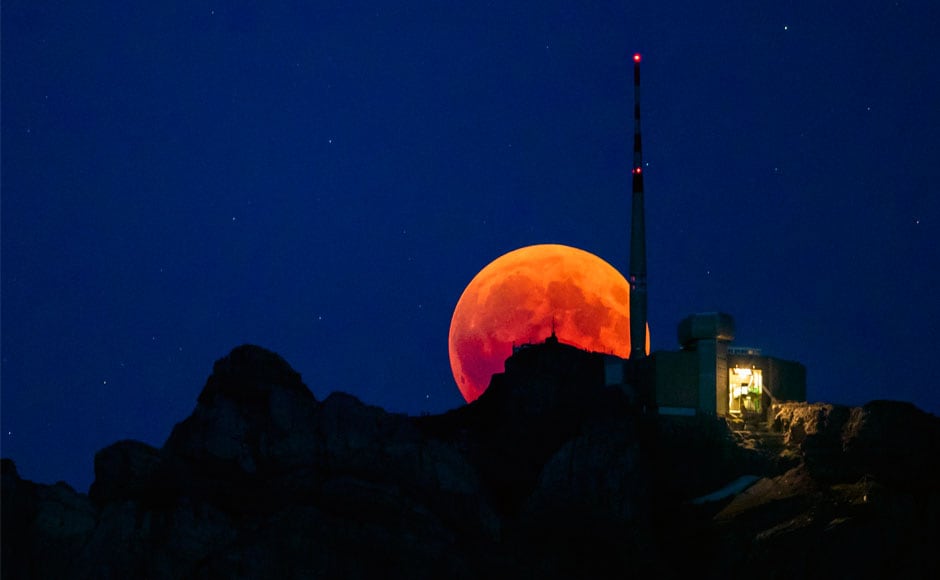FP TrendingMay 24, 2021 10:36:45 IST
When the moon moves into the Earth’s shadow and light from the sun cannot fall on the moon, it causes a lunar eclipse. This year, the first total lunar eclipse will be on 26 May. A total lunar eclipse is also called the Blood Moon. This is because of the reddish tinge that appears on the moon during a lunar eclipse. This phenomenon happens because light from the Earth’s sunrise and sunset falls on the surface of the moon. As the light waves are stretched out, they appear red in colour, explains Space.com. It will be the first one since 21 January 2019.

A total lunar eclipse is also called the Blood moon because of the reddish tinge that appears on the moon during a eclipse.
The full moon will be the closest to Earth on Wednesday night, 26 May. The Super Blood Moon will be visible to people in South and East Asia, Australia, most of North America, South America, Pacific, Atlantic, Indian Ocean and Antarctica.
The eclipse will be at its peak at around 4:49 pm IST. It will start at 2:16 pm IST and between 4:41 pm IST to 4:56 pm IST, the surface of the moon will be completely covered by Earth’s umbra. This is the time when it will be visible.
There will be two lunar and two solar eclipses this year. When the moon gets in between the sun and the Earth, it causes a solar eclipse. The next eclipse will be a partial lunar eclipse that will take place on 19 November. The solar eclipses will occur on 10 June and 4 December in 2021.
Post a Comment